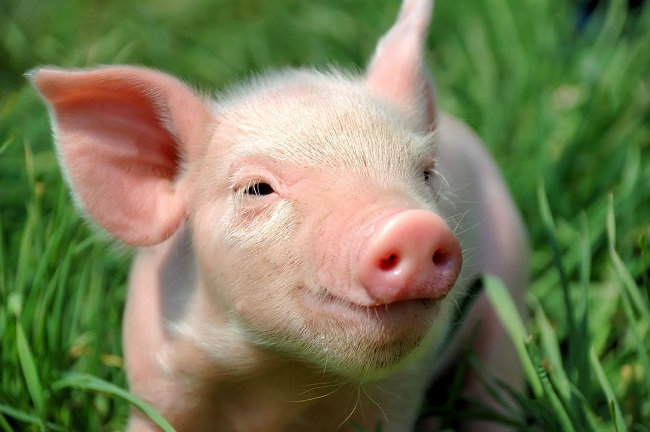Pigs are one of the most adaptable and versatile creatures on our planet, thanks to their omnivorous diet.
This article takes a comprehensive look at the omnivorous nature of pigs, detailing how it shapes their behavior, impacts their health, and benefits the ecosystems they inhabit.

Understanding Pigs as Omnivores
In the simplest terms, an omnivore is an animal that consumes a varied diet consisting of both plant and animal matter. Pigs fall into this category, as they naturally consume a diverse range of foods.
Read Also:
Their omnivorous diet allows them to adapt to different environments and food sources, making them one of the most resilient farm animals.
1. Dietary Composition
In the wild, pigs’ diet can be quite diverse, consisting of roots, tubers, leaves, fruits, nuts, insects, worms, small reptiles, and even carrion. Domesticated pigs, on the other hand, are typically fed a controlled diet composed of grains, fruits, vegetables, and animal byproducts.
2. Foraging and Feeding Behavior
Pigs have a remarkable ability to find food. Equipped with a keen sense of smell and a strong, flexible snout, pigs can root around in the soil, turning over earth to uncover roots, tubers, and small animals. This rooting behavior is a key indicator of their omnivorous nature.
3. Health Implications of an Omnivorous Diet
Being Omnivores, pigs require a balanced diet that includes proteins, carbohydrates, vitamins, and minerals. Their ability to consume a variety of food sources allows them to meet these nutritional requirements effectively. However, an improper diet can lead to health problems such as obesity, digestive issues, and nutrient deficiencies.
Omnivory and Ecosystem Benefits
Pigs’ omnivorous behavior plays a vital role in the health of ecosystems. Their foraging activity contributes to soil aeration and nutrient distribution, promoting plant growth and soil health.
Moreover, by consuming a variety of food sources, pigs help control the population of certain species, contributing to biodiversity.
Caring for Omnivorous Pigs
Understanding the omnivorous nature of pigs is vital for their proper care and feeding. Feeding pigs a balanced diet that meets their omnivorous needs can promote their health and productivity.
This includes a variety of grains, fruits, vegetables, and proteins. However, certain foods, such as chocolate, onions, uncooked beans, and anything moldy or spoiled, should be avoided as they can be harmful to pigs.
Influences on Pig Diet
Apart from their natural omnivorous habits, several other factors influence a pig’s diet. Recognizing these elements can help in providing appropriate nutrition for these animals.
1. Age and Growth Phase
The dietary needs of pigs change as they grow. Young piglets require a diet high in protein for growth, while adult pigs need more energy-dense foods to maintain their body condition.
2. Breed
Different pig breeds may have slightly different nutritional requirements. For example, heritage breeds often do well on a more fiber-rich diet compared to commercial breeds.
3. Environment and Climate
The environment and climate in which a pig lives can also affect its diet. Pigs living in colder climates or outdoor environments may need more energy-dense foods to maintain their body temperature.
4. Health Status
Pigs with certain health conditions may require a special diet. For example, pigs suffering from obesity may need a diet lower in calories, while those with digestive issues may benefit from a more easily digestible diet.
Read Also:
Conclusion
Pigs are quintessential Omnivores, capable of consuming and deriving nutrients from a diverse range of food sources.
Their unique dietary habits allow them to adapt to various environments and contribute positively to ecosystem health.
By understanding and catering to their omnivorous diet, we can ensure their health, productivity, and well-being.
























